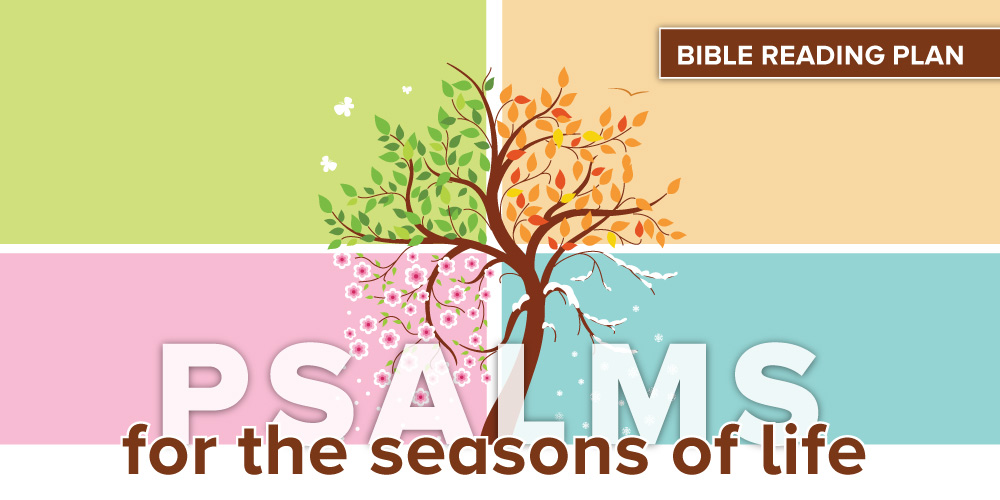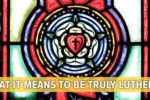 |
April 2–8
Psalm 78: “The introduction stresses the depth and the permanent relevance of God’s revelation. . . . The permanent and enduring relevance of God’s word is shown by the emphasis on passing it from one generation to another. . . . The psalm contrast[s] the repeated rebellion of Israel with the enduring grace of God. . . . The goodness of God in leading Israel from Zoan (their dwelling place in Egypt) to Zion (the permanent home of the temple) is contrasted with Israel’s persistent ingratitude. . . . The sad cycle would continue. . . . How sad that history repeats itself, but how wonderful that throughout history God’s grace never fails” (PBP 2, pages 28,29,32,36).
Psalm 79: “The calloused cruelty of the enemies and their scorn of the Lord cry out for divine judgment. . . . Above all, it is the insult to God’s honor that must be avenged. . . . In response to the destruction of the temple and to the cruel treatment of the people of Jerusalem, the psalmist has three prayers: that God’s honor be upheld, that his people be forgiven, and that his enemies be punished. . . . His ‘vengeance’ is just repayment for sin. The plea for sevenfold vengeance on enemies is not a plea for disproportionate punishment but for full justice. The enemies’ sin is not just against Jerusalem but against the holy, infinite God” (COP 2, pages 67,70).
Psalm 80: “Psalm 80 continues the general theme of the preceding psalms. . . . [It] has three main sections. The first describes the growth of Israel under such kings as David and Solomon. . . . The second section describes the present desolation of the once powerful kingdom. . . . In the third section of the body of the psalm, the people pray for the preservation of a godly king. . . . Now a greater king would be needed. . . . Because of him [Christ our King] we can pray, ‘Restore us, O Lord God Almighty; make your face shine upon us, that we may be saved’ (PBP 2, pages 38,40,42).
Psalm 81: “If only Israel had obeyed the Lord, how different its history would have been! . . . At the same time that Israel was invited to worship God, the people were also warned of the consequences of disobedience. . . . The Israelites’ main motive for obeying God’s command to worship only him was to be the love they had for him because of what he had done for them. However, God also encouraged them with promises of continued blessings. . . . The sad history of Israel is a warning to us. If God sent terrible judgments against his chosen people when they became unfaithful, can we expect to be let off more leniently if we follow their example of ingratitude?” (PBP 2, pages 43-45).
Psalm 82: “Corrupt rulers. . . failed to provide good spiritual leadership for the people. They also exploited and oppressed the people in order to satisfy their own greed. . . . The rulers are called ‘gods’ because they are God’s representatives and receive their power from him. . . . When rulers ignore even the natural knowledge of God’s law and lead their people into moral darkness, they destroy the very foundations of society” (PBP 2, pages 46,48).
April 9–15
Psalm 83: “In [the] very brief opening prayer, the psalmist calls on God to come to Israel’s rescue. . . . [He] prays that God will defeat the present and future enemies of Israel as decisively as he crushed and scattered its past enemies. . . . the glory of God and the repentance of his enemies are the psalmist’s chief concerns. The psalmist’s motivation is also brought out in verses 2 to 4. He must regard these people as his enemies because they are God’s enemies. They oppose God’s plan and try to rob his people of their inheritance” (PBP 2, pages 49,51).
Note: Opposition to these enemies is not simply so Israel can remain a nation. Opposition to Israel is a threat to the promise of the Savior who was to come from Israel and Israel’s King David, in particular, by God’s promise and plan.
Psalm 84: “The intense longing for God’s house that is expressed in this psalm is very similar to that expressed in Psalms 42 and 43. . . . Throughout the psalm, he speaks of the joy and strength of those who worship in God’s house. . . . Our churches hold special places in our hearts. . . . We too can say, ‘How lovely is your dwelling place, O Lord Almighty.’ It is true we can worship God anywhere, but may we never, through our own negligence or indifference, deprive ourselves of the joy of joining fellow believers in God’s house” (PBP 2, pages 53-55).
Psalm 85: “The peace and righteousness in this psalm are not political. They are the peace and righteousness won for us by Christ. The harvest of the land is not agricultural. It is the gathering of people into that Israel which is made up of all who believe in Christ. The harmony which existed between heaven and earth at creation was restored when Christ removed the barrier of sin which excluded us from paradise” (COP 2, page 108).
Psalm 86: “The beautiful description of the Lord in verse 15 is one of Israel’s favorite descriptions of the gracious God. . . . God has compassionate feelings for his people like those a mother has for her child, in spite of her faults and weaknesses. He has generosity like that of a father who freely gives undeserved, unearned gifts to his children. He has patience like that of a parent who again and again instructs a child in the right way. God is faithful to the promises he has made in the gospel. He will never abandon them” (PBP 2, pages 61,62).
Psalm 87: “This is a psalm of God’s grace. Because of God’s love and his choice, the Holy City becomes God’s special possession. Because of his proclamation, even his enemies are called to enter the Holy City. It is due to his grace alone that the kings of the earth enter his city and drink of the fountains of life” (Revelation 21:22-22:21) (PBP 2, page 64).
Psalm 88: “This psalm is unique in that the only spark of hope in the entire psalm is in the first verse, which refers to the God who saves. The rest of the palm in unrelieved darkness. . . . God has allowed such dark hours of his saints to be recorded in the Scriptures for our benefit. Though their faith was hanging on by a thread, God did not allow it to be broken. God does not break the bruised reed or snuff out the smoldering wick of faith” (COP 2, pages 122,125).
Psalm 89: “God had promised David that one of David’s heirs would remain on his throne forever. How could this promise be reconciled with [the secession of the 10 tribes, destruction of Jerusalem, and the exile into Babylon]? . . . The question ‘How long, O Lord?’ was not answered during the lifetime of the psalmist. . . . [But] we have seen how God’s eternal Son came into the world as David’s son. Like David, he was not a self-chosen king or usurper. He was chosen and anointed by God. . . . But after suffering and dying to free his people from sin, death, and the devil, he rose from the dead and was exalted to rule with power at the right hand of God. Only Christ, the Son of David who was perfectly faithful and obedient to God’s will, could fulfill this promise by ruling over the kingdom of Israel forever” (PBP 2, pages 70,76).
April 16–22
Psalm 90: “One must note in particular these two points in this psalm. First, Moses here stresses the tyranny of death and of God’s wrath, since he shows that human nature is subject to eternal death; he does this with the purpose of terrifying hardened and unbelieving despisers of God. Secondly, Moses prays for a remedy against despair, that men might not succumb to despair. Therefore Psalm 90 is an exceedingly precious psalm. In it we hear Moses perform his special office of terrifying sinners and . . . directing attention to divine redemption” (LW Vol. 13, pages 78,79).
Psalm 91: “Each of us is a traveler in the desert of this world where we face sin, death, and the devil. The heat of trials and hardships sometimes may leave us exhausted. But we find shade in the shadow of the Almighty. The living waters of his Word and sacraments revive us and restore our strength to go on. . . . The Bible describes our struggles with Satan as [a war]. . . . We are surrounded by clouds of angels. They are God’s commandos, his special forces who are here to pummel and smash the forces of Satan” (COP 2, pages 154-156).
Consider Richard Lauersdorf’s April 2023 Forward in Christ article on Psalm 4: “When you draw nearer to the end.”
Psalm 92: “The opening section of the psalm expresses the joy of praising God in public worship. . . . The psalmist declares the reasons for his joy: the greatness of God’s deeds of creation and redemption and the wonderful thoughts revealed in God’s Word. . . . The date palm is an apt picture for the fruitfulness of believers since it is a stately tree that bears hundreds of pounds of fruit a year, even in very hot, dry climates. . . . Spiritually we can keep on growing and producing our whole lives. . . . ‘Though outwardly we are wasting away, yet inwardly we are being renewed day by day’” (2 Corinthians 4:16-18) (COP 2, pages 159,163).
Psalm 93: “This psalm proclaims the Lord’s unshakable power over all creation. . . . The waves of the sea are often symbolic of the futile opposition of the nations and their leaders to the will and the plans of the Lord. . . . The Lord who rules the ocean sea also rules the restless sea of rebellious nations. In spite of mankind’s rebellion, God’s moral order (his testimonies) stands firm. Only those who are holy will be able to enter his house. Since we cannot claim such holiness on our own, we can obtain it only through Christ” (COP 2, pages 164,166,67).
Psalm 94: “This psalm is a prayer that is common to all the pious children of God. . . . to be prayed against all their persecutors. Therefore it can be prayed from the beginning of the world to its end by all. . . devout people. . . For they all have to suffer from the two groups of persecutors about whom this psalm complained: first, the tyrants, who use force to persecute [believers] on account of the Word; secondly, the false teachers, . . . who use lies and mockery to persecute the soul. . . . Where faith and the Word of God are at stake, it is not right to love or to be patient but only to be angry, zealous, and reproving” (LW Vol. 14, pages 243-245).
Psalm 95: “Psalm 95 sounds a joyful call to worship. . . . The first reason for praising and thanking God is his work of creation and preservation of the world. . . . The second reason for praising God is his work of redemption and sanctification by which he made us his people. . . . The ‘today’ of this psalm is this very minute. The ‘you’ addressed in this psalm is you. Today we have the promise of God’s eternal rest preached to us. Today, while there still is time, today, before it is too late, let us embrace God’s promise of rest . . . so that none of us falls short through unbelief” (PBP 2, pages 97-99).
April 23–29
Psalm 96: “Psalms 96 to 98 are very closely related. They express the joy that the Lord’s rule brings to the whole earth. . . . All the peoples of the earth are called to sing to the Lord, because he has provided salvation for the whole world. Christ won peace and forgiveness not only for Israel, but for all people. Since Christ died for all the world, God’s people are to proclaim the message of salvation to the whole world. . . . Only the Lord deserves praise. He alone is the Creator of the universe. He alone is the ruler of the universe. He alone is the Savior of the world. He alone is coming to judge the world” (PBP 2, pages 99-101).
Psalm 97: “Clouds, darkness, lightning, and fire all represent the awesome power of God, which will be displayed on judgment day. God’s wrath against sin, which is partially hidden now, will be fully displayed then. . . . Yet for God’s people, the awesome events of that day will be a cause for joy. . . . He will bring salvation to all who have trusted in Christ for forgiveness. ‘Let those who love the Lord hate evil.’ Those who love the Lord must battle God’s enemies. This battle may be painful and costly, but we are assured of God’s protecting power. Those who love good must shun and oppose evil. . . . The solution to sin and evil is not toleration or whitewashing but forgiveness in Christ. Only then can we rejoice in Christ’s coming” (PBP 2, pages 103-105).
Psalm 98: “This psalm is almost pure praise. . . . Although the created world does not join in man’s sin, the whole creation suffers the pain caused by man’s sin. The whole creation, therefore, rejoices when the pain caused by sin is removed. All of creation celebrates its redemption from the bondage to decay. In the new heavens and the new earth, the harmony between man and creation that was shattered by the fall will be restored once again. The waves and rivers which now batter and flood man’s dwellings will join him in praising God. A peaceful river will water the city of God” (COP 2, pages 188,189).
Psalm 99: “God dwells in unapproachable majesty. The holiness and majesty of God terrify sinners [but] the holiness of God is a comfort to his people who are repentant. They are twice invited to come and worship the holy God. . . . The psalm, which speaks so majestically of the lofty holiness of God, ends on a note of intimacy: he is holy, but he is our God” (PBP 2, pages 107,108).
Psalm 100: “True worship is based on knowing who God is and what he has done. We can sing a joyful song to the Lord because he has made us and redeemed us. . . . Joy and gladness, thanksgiving and praise flow naturally from hearts and lips that know the Lord’s goodness. Let us come before him with joyful songs” (PBP 2, page 110).
Psalm 101: “David declares his devotion to serving the Lord. One way he will serve him is by singing his praises. This David did especially through the psalms he wrote. David will also serve the Lord with a godly life. He recognizes that personal piety is essential for those who wish to be spiritual leaders to others. David expresses his eagerness for fellowship with God by the question ‘When will you come to me?’ ” (PBP 2, pages 111,113).
Psalm 102: “In my life of groaning I labor and fight against my evil nature so much that I am nothing but skin and bones, as Job says: ‘My bones cleave to my skin’ (19:20). By this groaning, therefore, not only the bodily and momentary sobbing is to be understood, but the whole repentant life and the laborious desire for grace and comfort. . . . Up to this point (verse 11) he has poured out his troubles and pressed himself upon God. Now he begins to express his desire and longing for the life that is in God, and he calls to Christ and his grace. . . . That is to say [he wants] to hear and learn the gospel” (LW Vol. 14, pages 180,182,183).
April 30–May 6
Psalm 103: “Psalm 103 is one of the most beautiful psalms of comfort. It is especially appropriate during sickness or hospitalization. . . . We can say with certainty that no sickness of a Christian is punishment for sin in the strict sense. Christ has already been punished for our sins so no further punishment is necessary. . . . The Lord has not dealt with us as our sins deserve. He has forgiven our sins for Christ’s sake. . . . The psalm concludes with an invitation for all creatures to join the multitude [of angels in heaven] in praising the Lord. Today we praise the Lord on earth as the angels do in heaven. Soon we will join together with those angels in heaven to praise the Lord” (COP 2, pages 212,215,217,221).
Psalm 104: “Psalm 103 praises the Lord for his work of redemption. Psalm 104 praises him for creation and providence. . . . The outline of Psalm 104 is based on the days of creation as reported in Genesis 1. . . . The psalmist closes with a prayer that God would continue to preserve his creation and rule it with justice. . . . Using our memories and minds to reflect on God’s work of redemption and creation should stir up our emotions and our will to praise the Lord. Motivating such praise is the goal of Psalms 103 and 104” (COP 2, pages 221,232).
Psalm 105: “Psalm 105 emphasizes God’s faithfulness to his covenant. Psalm 106 focuses on Israel’s unfaithfulness and disobedience. . . . Verse 42 is the key to the psalm. God’s remembrance of his covenant is more than a calling to mind. It is taking decisive action for the benefit of his people. God’s faithfulness was not due to Israel’s worthiness but to his own faithfulness to the promise he had made to the patriarchs. . . . The same principles set forth in this psalm apply to Christians today. God has redeemed us from sin and continues to forgive our sins, not because we are worthy but because of his faithfulness” (PBP 2, pages 130,135).
Psalm 106: “The history of Israel recorded in the Bible is unique in the literature of the ancient world. Unlike the literature of other nations, which glorifies those nations, the historical writing and poetry of Israel gives a frank account of the sins, failures, and defeats of the nation. The only unblemished hero in Israel’s literature is the Lord. The Israelites’ bad examples and the sad results which they produced should warn us against repeating their behavior. Let us be on guard lest we take God’s grace for granted and squander the blessings which he has provided” (COP 2, pages 245,258).






